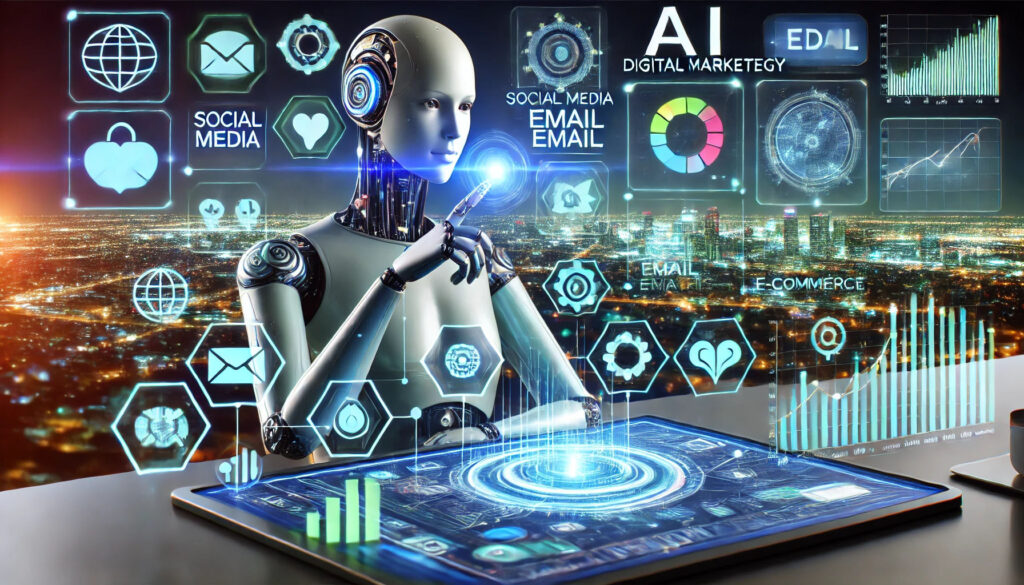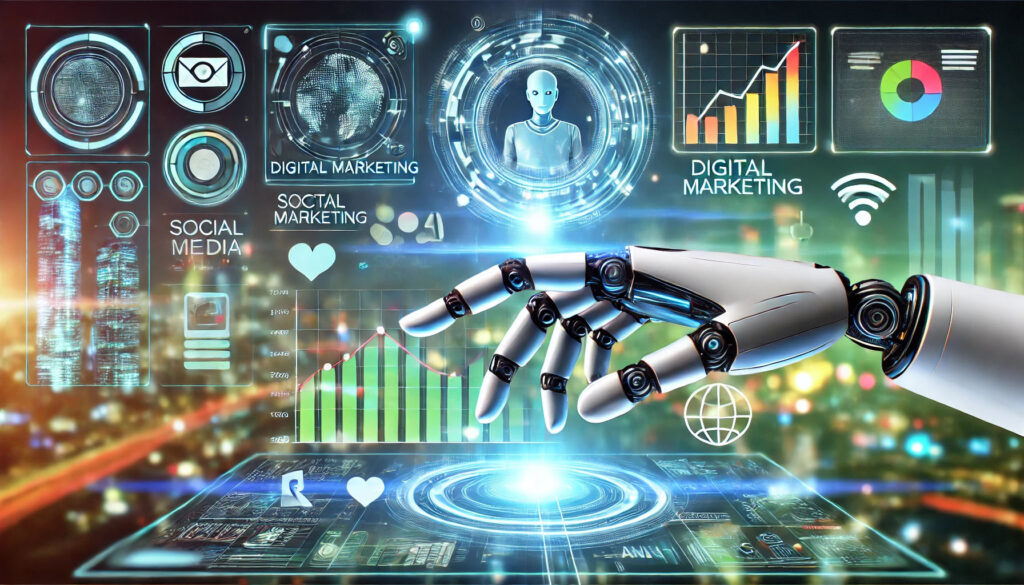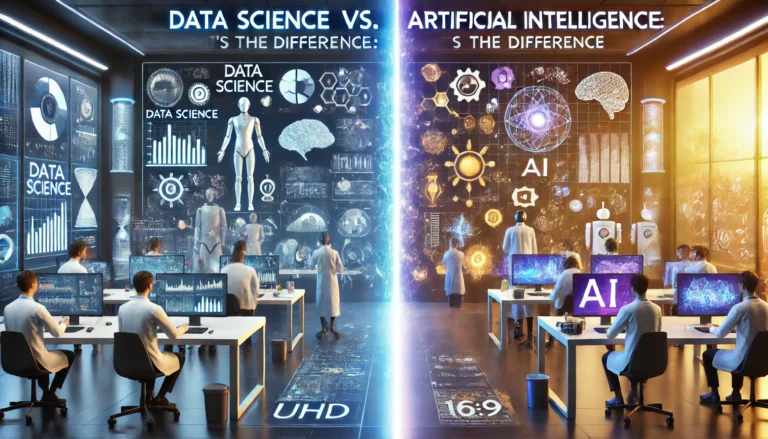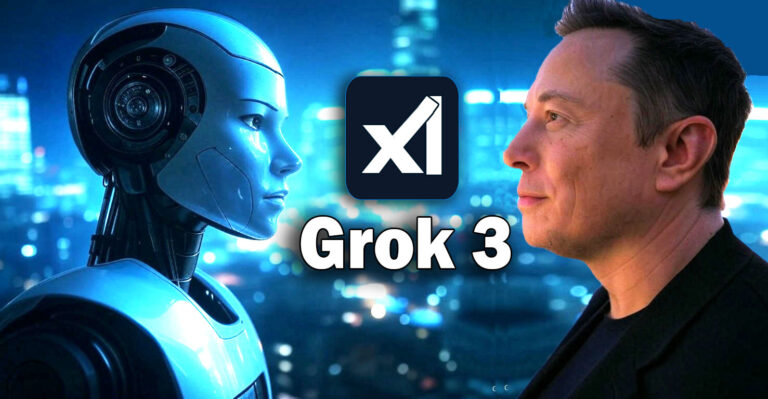
Digital marketing has undergone a significant transformation with the integration of Artificial Intelligence (AI). What was once reliant on intuition and conventional methods is now driven by data-driven insights, precision, and efficiency. In this article, we explore how AI is revolutionizing digital marketing strategies, focusing on its applications, benefits, challenges, and emerging trends.
Table of Contents
- Introduction to AI in Digital Marketing
- AI-Powered Personalization
- Chatbots and Conversational AI
- AI in Content Creation and Curation
- AI in Social Media Marketing
- Programmatic Advertising
- Voice Search Optimization
- Predictive Analytics in Digital Marketing
- Ethical Considerations and Challenges
- Future Trends in AI and Digital Marketing
- Conclusion
Introduction to AI in Digital Marketing
Artificial Intelligence refers to the simulation of human intelligence by machines, using techniques like machine learning, natural language processing (NLP), and computer vision. In digital marketing, AI empowers businesses to:
- Automate repetitive tasks such as email marketing and ad placements.
- Personalize content and recommendations for individual users.
- Predict trends and customer behaviors for better campaign strategies.
- Make real-time decisions based on large data sets.
Key features of AI in marketing include automation, personalization, predictive analytics, and real-time responsiveness.
AI-Powered Personalization

Personalization is crucial for engaging modern audiences, and AI drives this by analyzing vast amounts of user data to tailor experiences.
How AI Drives Personalization
- Customer Segmentation: AI identifies distinct audience groups based on behavior, demographics, and preferences.
- Dynamic Content: Content such as ads, emails, and landing pages is customized for each user.
- Product Recommendations: AI-powered algorithms (e.g., Amazon and Netflix) suggest relevant products or content.
Benefits of Personalization
- Increased user engagement.
- Higher conversion rates.
- Enhanced customer satisfaction and loyalty.
Chatbots and Conversational AI
Chatbots and conversational AI have transformed customer interactions by providing instant support and personalized assistance.
Benefits of AI-Driven Chatbots
- 24/7 Availability: Instant query resolution at any time.
- Multilingual Support: Tailored assistance for global audiences.
- Integration with Platforms: Seamless communication via social media and messaging apps.
- Enhanced Lead Generation: Personalized conversations boost conversions.
Examples
- ChatGPT-based Systems: Deliver natural, human-like responses.
- E-commerce Chatbots: Guide users through product discovery and purchase processes.
AI in Content Creation and Curation
AI tools are revolutionizing content marketing by automating content creation, optimizing distribution, and enhancing engagement.
Applications in Content Marketing
- Automated Writing: Tools like Jasper generate SEO-friendly articles and posts.
- Video Creation: Platforms like Synthesia create personalized video content.
- Content Curation: AI identifies and recommends relevant articles or media to audiences.
Benefits
- Saves time and resources.
- Increases consistency and relevance in content.
- Enhances audience engagement.
AI in Social Media Marketing
Social media platforms leverage AI for smarter targeting, better ad optimization, and detailed engagement analysis.
AI Applications in Social Media
- Predictive Analytics: Identifies trends and optimal posting schedules.
- Influencer Identification: Finds influencers that align with a brand’s values.
- Sentiment Analysis: Tracks public opinion and monitors brand reputation.
Case Study
Coca-Cola: Leveraged AI for sentiment analysis to create campaigns resonating with target audiences.
Programmatic Advertising
Programmatic advertising uses AI to automate ad buying, ensuring ads are displayed to the right audience at the right time.
Advantages
- Precise Targeting: Reaches specific audience segments.
- Real-Time Optimization: Adjusts campaigns dynamically for better results.
- Cost Efficiency: Reduces waste and maximizes ROI.
Voice Search Optimization
The growing popularity of voice assistants necessitates optimizing for voice search. AI aids marketers in adapting to this trend.
Key Strategies
- Conversational Keywords: Focus on natural, question-based phrases.
- Featured Snippets: Structure content to appear in voice search results.
- FAQ-Style Content: Address common queries directly.
Impact
- Enhanced visibility in search results.
- Improved user experience for voice-based queries.
Predictive Analytics in Digital Marketing
Predictive analytics uses historical data and AI to forecast outcomes, helping marketers refine strategies.
Use Cases
- Customer Churn Prediction: Identifies at-risk customers for retention campaigns.
- High-Value Lead Identification: Focuses efforts on prospects likely to convert.
- Market Trend Forecasting: Anticipates shifts to stay ahead of competitors.
Ethical Considerations and Challenges
AI’s integration into marketing comes with ethical and practical challenges that businesses must address.
Key Challenges
- Data Privacy: Compliance with GDPR and other regulations is crucial.
- Bias in Algorithms: Ensuring fairness and objectivity in AI-driven decisions.
- Over-Reliance on Automation: Balancing AI efficiency with human creativity.
Solutions
- Transparent data policies.
- Regular audits of AI systems.
- Combining AI with human oversight.
Future Trends in AI and Digital Marketing
AI will continue to shape digital marketing with innovative technologies and practices.
Emerging Trends
- AI-Generated Influencers: Virtual influencers offering unique engagement opportunities.
- Augmented Reality (AR) Marketing: AI-powered interactive AR campaigns.
- Advanced Personalization: Using biometric data to create ultra-tailored experiences.
Conclusion
Artificial Intelligence is redefining digital marketing by making it more efficient, precise, and customer-focused. By leveraging AI’s capabilities, businesses can create strategies that resonate with their audiences and drive meaningful results. As technology advances, embracing AI will be key to staying competitive in the evolving digital landscape.




